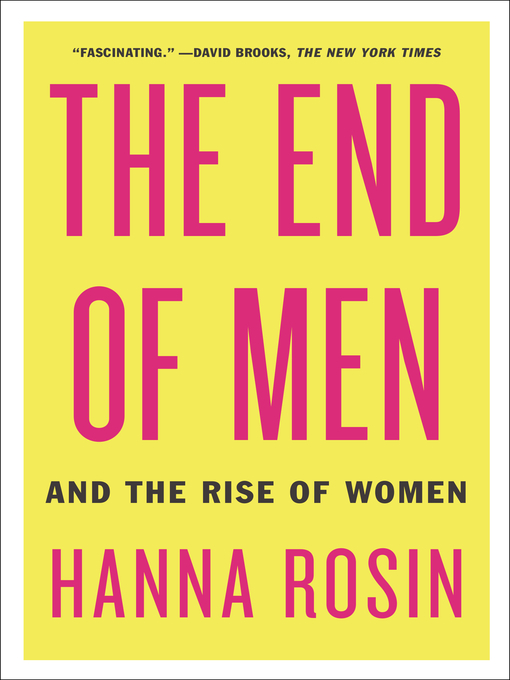Essential reading for our times, as women are pulling together to demand their rights— A landmark portrait of women, men, and power in a transformed world.
“Anchored by data and aromatized by anecdotes, [Rosin] concludes that women are gaining the upper hand." –The Washington Post
Men have been the dominant sex since, well, the dawn of mankind. But Hanna Rosin was the first to notice that this long-held truth is, astonishingly, no longer true. Today, by almost every measure, women are no longer gaining on men: They have pulled decisively ahead. And “the end of men”—the title of Rosin’s Atlantic cover story on the subject—has entered the lexicon as dramatically as Betty Friedan’s “feminine mystique,” Simone de Beauvoir’s “second sex,” Susan Faludi’s “backlash,” and Naomi Wolf’s “beauty myth” once did.
In this landmark book, Rosin reveals how our current state of affairs is radically shifting the power dynamics between men and women at every level of society, with profound implications for marriage, sex, children, work, and more. With wide-ranging curiosity and insight unhampered by assumptions or ideology, Rosin shows how the radically different ways men and women today earn, learn, spend, couple up—even kill—has turned the big picture upside down. And in The End of Men she helps us see how, regardless of gender, we can adapt to the new reality and channel it for a better future.
- Available Now - Ebooks
- Unputdownable ebooks!
- New eBook additions
- Rapid Reads! (Always available)
- Read Before You Watch
- Addiction Affects Everyone
- NSFW! - ebooks
- Harry Potter around the world
- 中文标题
- Livres en Français
- Graphic novels & comics - for adults
- Most popular
- Read a Banned Book
- See all ebooks collections
- New audiobook additions
- Unputdownables!
- Read a Banned Book
- Hola, Bonjour, Hallo, Ciao, Namaste, Marhaba! Learn a language
- Author interviews UPDATED (Professional Book Nerds) - Always Available - Audio podcasts
- Nonfiction Audio - UPDATED - Always Available
- Fiction Audio - UPDATED - Always Available
- En Français, comprenez-vous?
- по-русски, понимаете ли вы?
- NSFW!
- Harry Potter around the world
- Most popular
- Available now
- See all audiobooks collections




